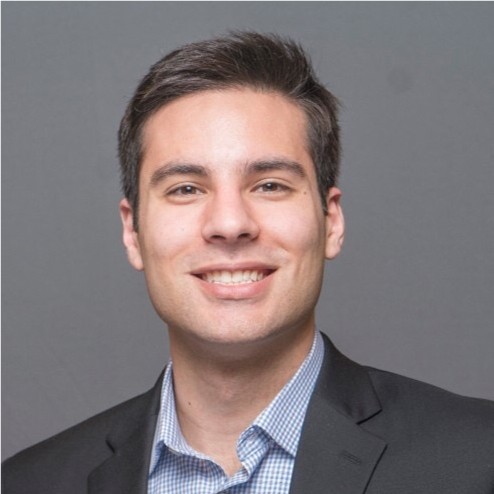Name: Bryan Dextradeur
Class Year: 2017
Title: Consultant
Organization Name: Deloitte Consulting LLP (on leave) / Tuck School of Business at Dartmouth College
1. In one sentence, what does your job entail?
Collaborating with business leaders to design and implement innovative ways of competing in the market by developing growth strategies and addressing operational challenges.
2. What planned and unplanned events connected you to your industry and your first employer after Holy Cross? How did you learn/decide it was a good fit for you?
My path fell more on the “unplanned” side – I networked aggressively for 8 – 10 months prior to recruiting season. I knew Deloitte was a good fit for me because of the people – they were interested in getting to know my story and they were generous with their time, both in terms of sharing their experience with me and helping me prepare for recruiting. I immediately had the sense that they would feel like “teammates” instead of coworkers – and that is exactly the culture I found when I arrived after graduation!
3. What were you involved in when you were on campus?
I was an Organic Chemistry II Teaching Assistant, SRC in the Office of Wellness Programming, Admissions Tour Guide, and avid intramural water polo player.
4. What was your major and how did it affect your career decisions?
I was a biology major on the pre-med track. I’ve always had an interest in health care and I’ve carried that forward into my consulting career. At Deloitte, I’ve worked exclusively with health care clients, including health plans, integrated delivery systems, public sector health agencies, and digital health firms. In my time at Tuck, I’ve been closely involved with the Center for Health Care, which develops programming at the intersection of business and health care (e.g., educational sessions, networking opportunities, visiting industry executives, etc.).
5. What are one or two skills that you developed at Holy Cross that you use in your work?
Analytical skills. Having taken many labs at Holy Cross in the pre-med program, I was well-versed in designing experiments, collecting data, analyzing it, and drawing conclusions. In many ways, consulting is not that different! When you have a new client, you start by developing a hypothesis on what the root cause of their concerns is / how they should respond, you collect a ton of qualitative and quantitative data to help you investigate the issue, you analyze that data rigorously to develop insights, and you ultimately arrive at an evidence-based recommendation. Robust analytical skills are a daily necessity in consulting.
Storytelling skills. These are perhaps the most underrated skills in consulting. When I was taking Montserrat at Holy Cross, I often rolled my eyes at the frequent oral and written presentations we had to give, but those experiences have served me well in my career. On a consulting case, it doesn’t matter how insightful or critical your findings are if you can’t effectively communicate them to the audience. The executives who pay for consultants are busy people. You have to be able to tell a clear, concise, and compelling story on your findings if you want them to listen to you and implement your recommendations.
6. What advice do you have for students on campus today?
Start early. It’s disappointing to me when I hear from a Holy Cross student expressing interest in consulting for the first time at the beginning of senior year. Undergraduate consulting recruiting typically begins in August / September of senior year, so at that point, there’s not much I can do to help them. Building networking relationships several months prior to recruiting and beginning the recruiting preparation process early will put you in a better position for success when recruiting kicks off.
Focus on your story. When I speak with students, I don’t expect them to have a show-stopping resume, but I do want to hear a clear, crisp summary of what they have accomplished so far, what skills they have gained from those experiences, why they are interested in consulting, and how those skills will translate into consulting. When students do this well, I can tell they have both realistic goals and a clear self-awareness on how they can achieve those goals, which increases my confidence that they can be successful. This also boosts the chances of getting a warm introduction!
Be honest. If you’re starting early, you don’t need to be 100% sure you want to pursue consulting, nor do you need to know everything there is to know about it. College, and networking, can be time of valuable exploration and reflection as you determine which career you want to pursue. Tell the people you are networking with where you are at in the process and what you’re hoping to get out of each call. If you’re early in the process, far better to tell someone your focus now is learning about the career with the intention of possibly recruiting at a later time than telling them you’re ready to recruit immediately when you’re unsure if you want to and not well-versed in the career.


